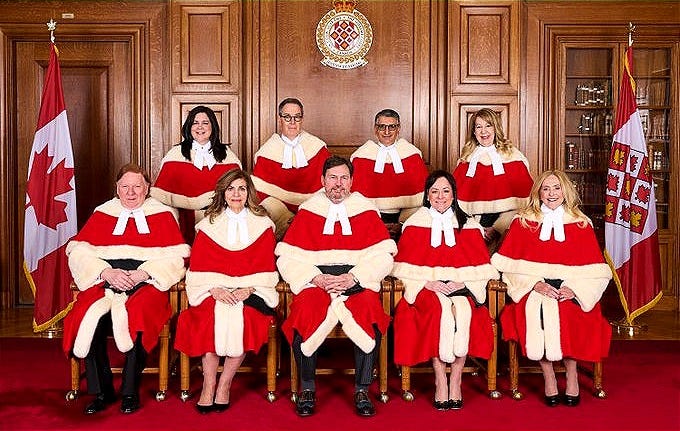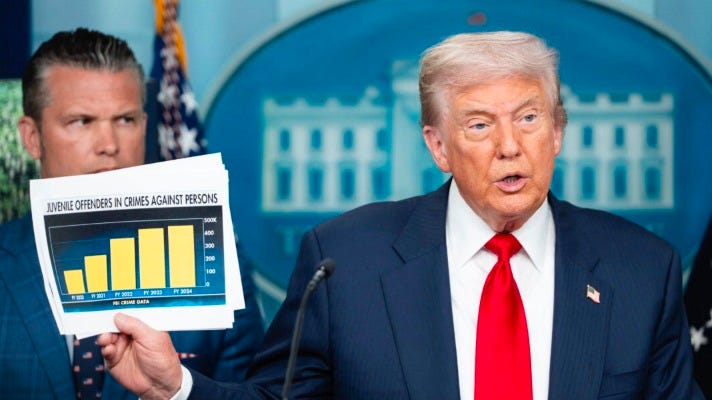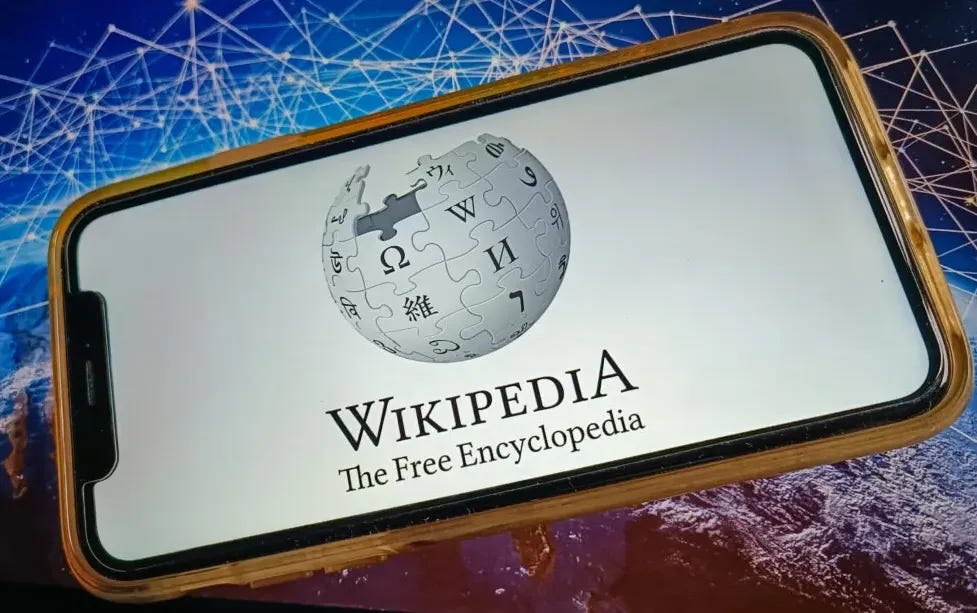Good morning, It’s Tuesday, August 12th. In today’s news, a billion-dollar fight erupts over Métis recognition, the Supreme Court of Canada launches an unprecedented PR blitz, B.C. moves to appeal a historic Aboriginal title ruling, Trump federalizes D.C.’s police and pushes to deploy the National Guard in Washington, and much more.
First time reading the daily blend? Sign up here.
Identity Fraud or Political Smear? The Billion-Dollar Battle Over Métis Recognition
The fight over Indigenous identity in Canada just escalated—and this time, the price tag is nearly a billion dollars.
A Global News report reveals that First Nations in Ontario and the Manitoba Métis Federation (MMF) are demanding answers after federal departments funneled $819,836,061 over roughly 20 years to the Métis Nation of Ontario (MNO). The allegation? That the MNO is fraudulently claiming Métis identity—and siphoning resources away from recognized rights-holding nations.
The accusers—the Chiefs of Ontario, representing 133 First Nations, and the MMF—say Ottawa’s recognition of the MNO is built on shaky ground. They argue that much of the MNO’s membership does not meet the established definition of Métis, which traditionally traces ancestry to the Red River homeland. According to critics, as many as 90% of MNO registrants may not qualify under these standards.
The dispute over legitimacy isn’t new. The Métis National Council (MNC) has long criticized the MNO for registering individuals from regions like Mattawa, Georgian Bay, Killarney, and Temiskaming—areas that the MNC says fall outside the historic Métis homeland. For the MNC, this is not a technical disagreement but a fundamental breach of identity, culture, and treaty rights.
Government recognition has fueled tensions. In 2017, Ontario formally recognized six new “historic Métis communities” identified by the MNO, a move that First Nations leaders say lacks credible historical evidence. In May 2025, the MMF and Chiefs of Ontario jointly renewed calls for governments and institutions to take action against Indigenous identity fraud, directly naming the MNO. This follows earlier public criticism at a 2024 fraud summit.
The MNO rejects these accusations outright, calling them “Métis denialism” and pointing to court decisions like Powley (2003) as legal affirmation of their communities. They also cite a recent Métis National Council expert panel report that concluded several northern Ontario communities meet the national definition.
At stake is more than money. Critics argue that federal recognition of questionable claims undermines consultation rights, diverts resources, and blurs the legal definition of who holds constitutionally protected Indigenous rights. Supporters of the MNO counter that such challenges fracture Indigenous solidarity and risk erasing legitimate communities from the national conversation.
For now, the $819 million question remains: Is this a case of Ottawa funding a legitimate Indigenous government—or has nearly a billion dollars been spent propping up a manufactured identity? Source.
Supreme Court Launches Unprecedented PR Campaign—Why This Should Alarm Canadians
The Supreme Court of Canada is rolling out what amounts to a full-scale image makeover—something virtually unheard of for a judicial body that’s supposed to stay removed from politics and public persuasion.
Chief Justice Richard Wagner, along with other justices, is going on a PR tour across Canada, with stops like Yellowknife to meet students, Indigenous elders, and the public. The court is also putting on high-priced “engagement dinners,” issuing commemorative coins with the Royal Canadian Mint, commissioning a children’s book starring Wagner and a cartoon owl, and inviting kids to submit essays praising the court for a chance to meet the chief justice.
They’re even redesigning their traditional red robes, launching big-budget social media campaigns, and holding a flashy “ceremonial opening” of the judicial year. The budget for the Court has ballooned by 37% since 2017, even as the number of cases they rule on has hit historic lows (just 36 in 2023, compared to about 80 in the late 1990s).
All of this comes against a backdrop of mounting criticism over controversial rulings—like striking down consecutive sentences for mass murderers, rewriting youth sentencing laws, and using language in rulings (“person with a vagina”) that sparked backlash from the Quebec National Assembly. These decisions have led politicians, including Pierre Poilievre, to openly talk about using the Charter’s Notwithstanding Clause to override the Court’s authority.
Why it’s bad:
Judicial impartiality is undermined—courts should not be selling themselves like a brand. Public relations campaigns risk politicizing the judiciary and eroding the perception that decisions are based purely on law, not on popularity.
It signals eroding legitimacy—if the top court is spending millions trying to convince Canadians it’s the “guardian of democracy,” it’s likely because controversial rulings have cost them public trust. Instead of addressing the substance of those concerns, they’re trying to manage optics.
This is the first time in Canada’s modern history the Supreme Court has openly acted like a political institution—and it’s doing so precisely at a time when many Canadians feel its decisions are out of step with justice and democratic accountability.
Private Property vs. Reconciliation: B.C.’s Land Dispute Heats Up
Last week, a historic court ruling recognized the Cowichan Nation’s Aboriginal title over land in Richmond, B.C., marking one of the most significant urban land decisions in Canadian history. But just days later, the province announced it will appeal.
The decision came after a 513-day trial and nearly 280,000 words of legal reasoning from Justice Barbara Young. The ruling declared that the Crown’s grants of private property ownership rights over the lands “unjustifiably infringe” on Cowichan Aboriginal title, and that the titles and interests held by Canada and the City of Richmond were “defective and invalid.”
The Attorney General of B.C., Niki Sharma, called the decision deeply concerning, warning of “significant unintended consequences” for private property rights. “We disagree strongly with the decision. British Columbia will be filing an appeal and seeking a stay to pause implementation until the appeal is resolved,” Sharma said.
The Cowichan Nation’s claim focuses on land along the south shore of Lulu Island, an area historically used as a summer fishing village. The court recognized that every summer, Cowichan ancestors travelled “en masse” to a permanent post-and-beam village to fish for salmon, a practice integral to their culture and sustenance.
Cowichan Chief Cindy Daniels stressed the ruling was about restoring their connection to the land, not financial compensation. “Our land and resources objectives are to recover and restore our village and surrounding lands… re-establish cultural practices… and re-establish the truth of our history in that region,” she said.
The case, however, has ignited fears among homeowners, municipalities, and businesses in Richmond. Critics worry about impacts on mortgages, property values, and the stability of private ownership. BC Conservative MLA Steve Kooner said constituents are “worried about their property rights being affected.”
Adding complexity, the Musqueam and Tsawwassen First Nations opposed the Cowichan’s claim, and Musqueam leaders have signalled they may appeal as well, citing their own title over the Fraser River.
For the Cowichan, this case is about more than legal recognition—it’s about “resetting their relationship with the Crown” and restoring what was lost through colonization. But for B.C., the decision forces a collision between reconciliation and the security of private property rights—a tension that could reshape land law in Canada. Source.
Trump Places DC Police Under Federal Control, Orders National Guard to Washington
President Donald Trump has declared a crime emergency in Washington, DC, invoking Section 740 of the DC Home Rule Act to take control of the Metropolitan Police Department for 48 hours, with potential extensions up to 30 days. Attorney General Pam Bondi will oversee the MPD, while DEA chief Terry Cole will serve as interim federal commissioner. Trump also ordered the mobilization of hundreds of National Guard troops to assist, though they will only be able to detain suspects until police arrive.
The move comes despite official data showing violent crime in DC has dropped 26% this year after hitting 30-year lows in 2024. Local leaders, including Mayor Muriel Bowser and D.C. Attorney General Brian Schwalb, blasted the action as unnecessary and unlawful. Trump, citing ongoing safety concerns, also announced plans to remove the homeless from the city and hinted at similar interventions in cities like Chicago. Police union leaders have accused the MPD of downplaying crime by reclassifying offences. More
Wikipedia Loses Court Challenge to UK Online Safety Act Rules
The Wikimedia Foundation has lost its legal challenge against the UK’s Online Safety Act, a sweeping law designed to regulate “illegal” and “harmful” online content. If Wikipedia is classified by regulator Ofcom as a “Category 1” platform—a decision expected this month—it will be forced to verify contributor identities, introduce strict age checks, and comply with expanded content moderation duties.
Wikimedia warns these requirements would drive away UK contributors, erode anonymity, and undermine the volunteer-led editing model that has built Wikipedia’s 65 million articles in over 300 languages.
The OSA carries tough penalties for noncompliance, including fines of up to £18 million or 10% of global revenue, and even blocking sites in the UK. Wikipedia cofounder Larry Sanger has also reignited criticism of the platform, accusing it of drifting from neutrality into political bias. More
Judge Rejects Government Bid to Unseal Material Related to Jeffrey Epstein - “The Court’s review confirmed that unsealing the grand jury materials would not reveal new information of any consequence,” the judge said. More
Then why not just release it?
Colombian Senator and Presidential Hopeful Miguel Uribe Dies Two Months After Being Shot in the Head - More
ICE Arrests Over 350 Members of More Than 40 Different Gangs in Houston - More
Finland Charges Captain and Two Officers of Russia-Linked Oil Tanker That Damaged Undersea Cables - More
At Least One Dead After Explosion at US Steel Plant, with Another 10 Injured and One Missing - More
Thousands Protest Plan to Build World’s Longest Bridge from Sicily to Italy - Residents are opposed to the bridge due to its scale, earthquake threats, environmental effect, and mafia interference. More
The AI Revolution Will Kill Jobs—But It Might Spark the Most Exciting Careers in History
OpenAI CEO Sam Altman admits AI will wipe out some jobs, but he’s betting the next decade will unleash career opportunities that are out of this world. Literally. Altman envisions 2035 college grads leaving Earth on high-paying space missions, doing work today’s workforce can only dream of.
Meanwhile, tech titans like Bill Gates predict AI will slash the traditional workweek, freeing humans from mundane tasks. Nvidia’s Jensen Huang says AI has already turned employees into “superhuman” performers.
Altman also revealed the launch of GPT-5 makes it possible for a single person to build a billion-dollar company from their basement—no massive teams required. Mark Cuban went further, suggesting AI could create the next Elon Musk...and the world’s first trillionaire living under a staircase. Let’s hope they’re right. More
Air Canada Flight Attendants Begin Picketing at 4 Major Airports Today - CUPE says it is looking to raise awareness about what it calls 'poverty wages' and unpaid labour. More
AMD and Nvidia Have Agreed to Pay a 15 Percent Fee to the US Government for Microchip Sales in China - More
Bye-Bye Teflon: This Slick New Material Could Change Cookware Forever
Researchers at the University of Toronto have developed a new non-stick coating that matches the performance of traditional PFAS-based materials like Teflon but uses far less harmful chemicals. Their innovative “nanoscale fletching” technique bonds tiny silicone (PDMS) chains with minimal short-chain PFAS, which don’t bioaccumulate, creating a safer alternative that repels oil and water effectively. This breakthrough will pave the way for healthier, more environmentally friendly non-stick products while reducing reliance on “forever chemicals.” More
Scientists Create a Mysterious Molecule that Could Spark Life in Space - More
Paramount and TKO Seal $7.7 Billion Deal to Broadcast All UFC Events in the US
Starting January 2026, all UFC events will stream exclusively on Paramount Plus for seven years, following a $7.7 billion deal securing UFC rights through 2032. This marks a major shift as UFC abandons its traditional pay-per-view model, making marquee events and Fight Nights available to Paramount Plus subscribers at no extra cost. The move aims to boost Paramount’s streaming platform, with select events also airing on CBS. UFC, the world’s leading mixed martial arts organization, hosts about 43 events annually and reaches nearly 100 million fans worldwide. This partnership signals a powerful new era for live sports streaming and subscriber growth for Paramount. More
2026 FIFA World Cup Organizers Are Beginning Their Search for 65,000 Volunteers - This includes 6,000 in Canada, making the 2026 competition FIFA’s largest-ever volunteer program. More
Norwegian Ski Jumpers, Including Two Olympic Gold Medalists, Charged with ‘Equipment Manipulation’ That Helped Them Fly Further - More
Pamela Anderson Is Selling Pickles, With All Proceeds Going Towards the California Wildlife Centre - More
Italian Man Survives Two Days with a Crossbow Bolt Lodged in His Brain After Shooting Himself in the Head
A Homeless Flip-Flop-Wearing Man Completed an 8 km Race to Shake Off His Hangover in Brazil - More
On this day in 1908, the Ford Motor Company built its first Model T car, which Henry Ford himself tested on a hunting trip to Wisconsin and Northern Michigan.



















Our judicial system needs to be revamped. Defund the judiciary not worth the money
Wagner inherented something awful from his predecessor. Maybe advancing the least awful feminist isn’t a good judicial HR strategy.